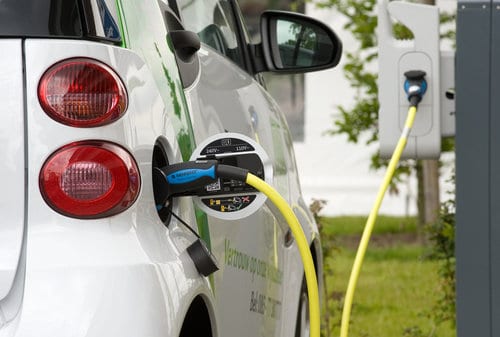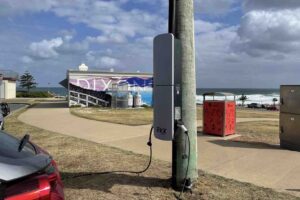
India’s Road Minister says the country will have 100 percent electric vehicles by 2030 to become the first “100 percent electric vehicle nation.” He may not have heard of Norway’s plans – or the Netherlands’.
Shortly after Norway began looking into requiring all new cars to be fully electric starting in 2025, the lower house of Dutch Parliament supported a motion last month to ban sales of new petrol and diesel cars starting in 2025. Like the Norwegian plant, the Dutch proposal is not yet law – and it still faces some opposition domestically (report in Dutch). Significantly, the People’ Party (VVD) – the largest in the country and head of the current governing coalition – finds the idea “unrealistic.” But other parties point out that the Dutch Energy Act expires in 2023, so a ban on diesel and gasoline vehicles afterwards would not require that Act to be revised.
The Indian government is working on a scheme that also seems a bit far-fetched at present. The Dutch and Norwegians are fairly rich; Indians, less so. So India’s Road Minister Nitin Gadkari wants to sell electric vehicles without a down payment, and people would pay for the car “out of the savings on petroleum products.” A meeting is to be held next week on the matter with India’s Oil Minister and its Environment Minister.
With oil prices now down considerably, however, it is questionable whether the savings will be enough to pay for the batteries alone, which need to be replaced. Tesla apparently offers and eight-year battery warranty with unlimited miles, but generally it is assumed that such batteries will need to be replaced after around 150,000 kilometers. Back in 2013, I compared the savings from oil expenses to the extra costs of batteries and was not convinced. However, the situation has improved considerably for electric vehicles over the past three years and will continue to do so.
Still, India’s investigation is welcome as an alternative to the only other thing likely to work: outright bans on non-electric vehicles. At present, no such ban has been implemented, but perhaps it is only a matter of time. And a focus on how electric vehicles could be made affordable for the poor could also come at the issue from a different angle. Tesla started with the luxury market and is working its way down. But electric vehicles below 10,000 euros or nowhere in sight, and they would probably have to be slightly different. (Anyone who thinks the new Tesla Model 3 is an affordable car at 35,000 dollars has a different definition of “middle-class” than I do.)
Source: Renewables International. Reproduced with permission.








